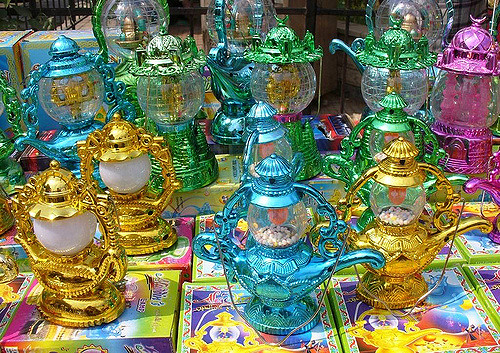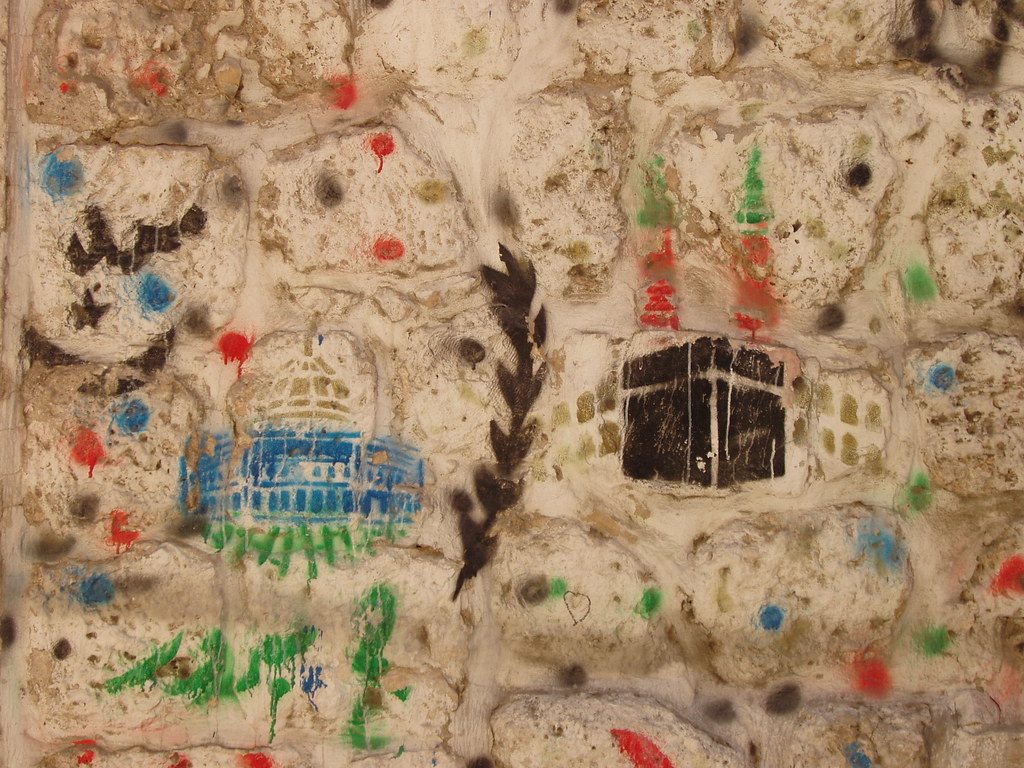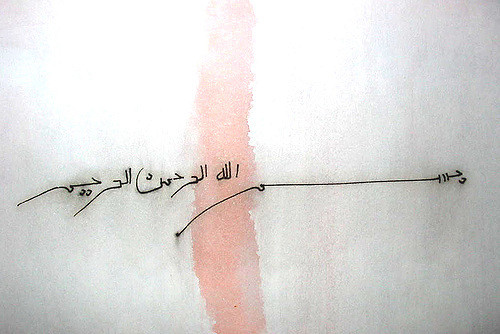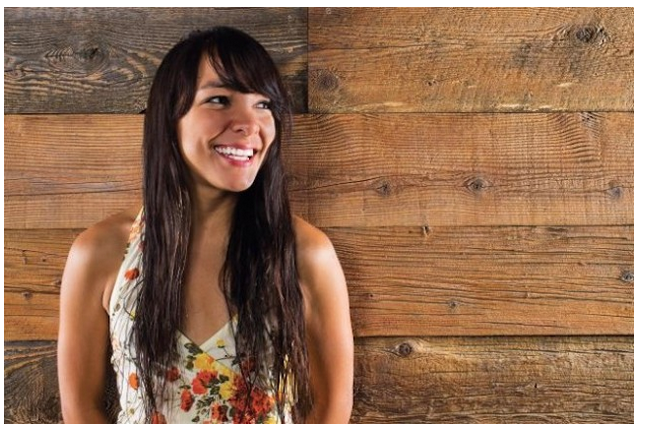As a very new Muslim at the end of my first ever Ramadan I believe Islam should come with a warning label, but not for the reason many non-Muslims might think. WARNING: Ramadan may cause addiction to Islam and community.
The first week of Ramadan was overwhelming. While I had no difficulty fasting due to previous health fasts involving juicing, I was worried that I would forget not to drink. For me, thirst is far more powerful than hunger.
Because my family isn’t Muslim and my husband has strongly objected to all things Islam, I found myself gravitating to the masjid (mosque). Breaking the daily fast at Iftar at the masjid was a bigger reward than the new cultural foods I shared there.
No matter how unkind people were to me for my choice to become Muslim, there was always a very large, welcoming family waiting for me.
By week two I had figured out a food strategy for suhoor and how to take a cat nap and not be completely incapacitated by lack of energy and sleep deprivation. Little did I know that this would pale in comparison to the final 10 days of Ramadan for sleep deprivation.
With standing during Tarawee prayers from 10 p.m. until midnight came foot cramps, back aches and even more bonding and friendships. By the second hour we would begin to sway side to side, both from the intensity of the Quran recitation by the visiting Egyptian Sheik and to keep muscles from locking up.
Being charged up by the spirit of Allah and the food at Suhoor at 3:30 a.m., I have taken to reading Quran and reciting the 99 Names of Allah aloud, like counting the holiest of sheep.
I will always count as my heroes the women who sacrifice their prayer times in order to do all the cooking, preparation and cleaning during Ramadan.
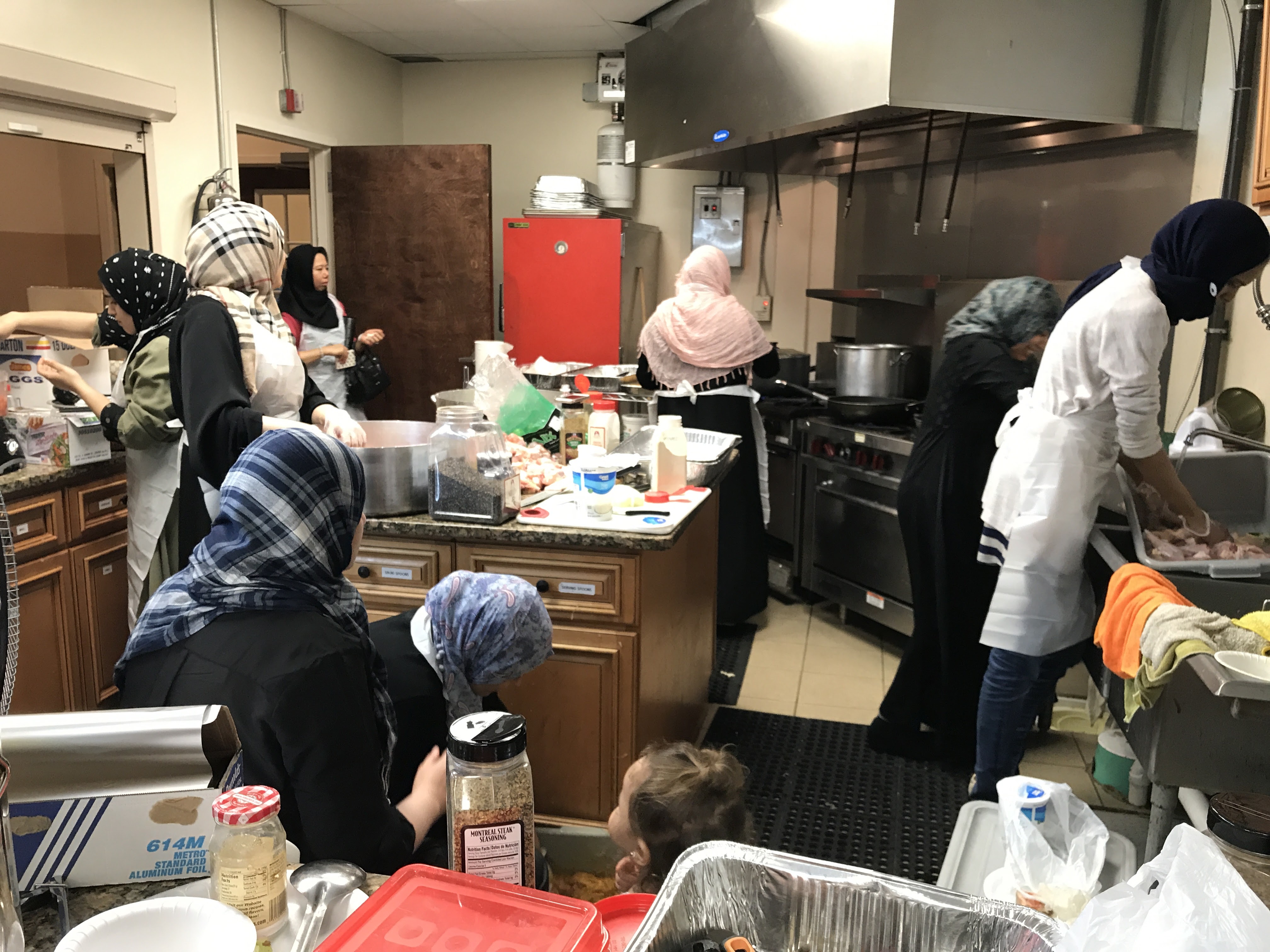
Because I had no teacher other than what I can research online, via the Step-by-Step Salah and Muslim Pro apps and YouTube I knew absolutely nothing about what to expect the last 10 nights of the holiday or Eid.
It was only by overhearing a sister say, “Well we’re in the last 10 nights now” that I began to ask around about what was happening – Tahajjud.
If I thought that standing through hours of a recitation in a language I didn’t understand and not knowing what to do at any given moment was difficult, Tahajuud was an entirely new level. Staying overnight in the place of worship for multiple nights was unheard-of to me. I had absolutely nothing to prepare me for this wondrous, beautiful, experience of community and faith.
I expected to be exhausted, sleepy and lonely.
What I became was awakened in every way, filled with a light I have never known and bonded to sisters and brothers who, I pray, will always be a part of my life long after Ramadan has passed.
When a sister first explained that we would stay at the masjid from Iftar (8:28 p.m.) until Fajr (4:16 a.m.) I thought, “Well good luck with that! I’ll be home sleeping”
Shortly after thinking that, I felt a powerful need to try it, “just for one night” to get the full Ramadan experience – just to say I’d done it once.
Here is where I completely underestimated the addictive properties of Ramadan and Islam itself. Now I was on holy ground with Allah breathing into me a new life and strength I’ve never known. Rather than being exhausted at 5 a.m., I was like one of the children who run around like wild puppies in the masjid – full of energy. I have been told that “nobody expected you to do Tahajuud!” I tell them I include myself among these people.
Because the masjid if just a few blocks from my home I was able to walk home in between Tarawee and Tahajuud at 2 a.m. However, after a 17-year-old Muslim girl was abducted while walking home from a mosque here in Virginia and murdered, I chose to stay at the masjid straight through.
I adopted a black Abaya I was given by Khadija, from Morocco, because it was so simple, sleek and cool in the Virginia heat. I believe the abaya is the Muslim fashion equivalent to the non-Muslim’s “little black dress” because it is classically beautiful to me and universally appropriate to every occasion.
Almost every non-Muslim I know has recoiled from me in horror, disgust and anger when they saw me in my Abaya and hijab for the first time. They associate the Abaya and black hijabs with every negative Muslim stereotype. My hope is that knowing me, seeing that the only changes in me are for the good, will help soften their hearts.
So it was in those spaces between the praying and swaying that I found I belonged in the Islamic community as much as in the faith. The henna sessions between the end of Tarawee and 2 a.m. that left women with hands wrapped like mummies will not soon be forgotten.
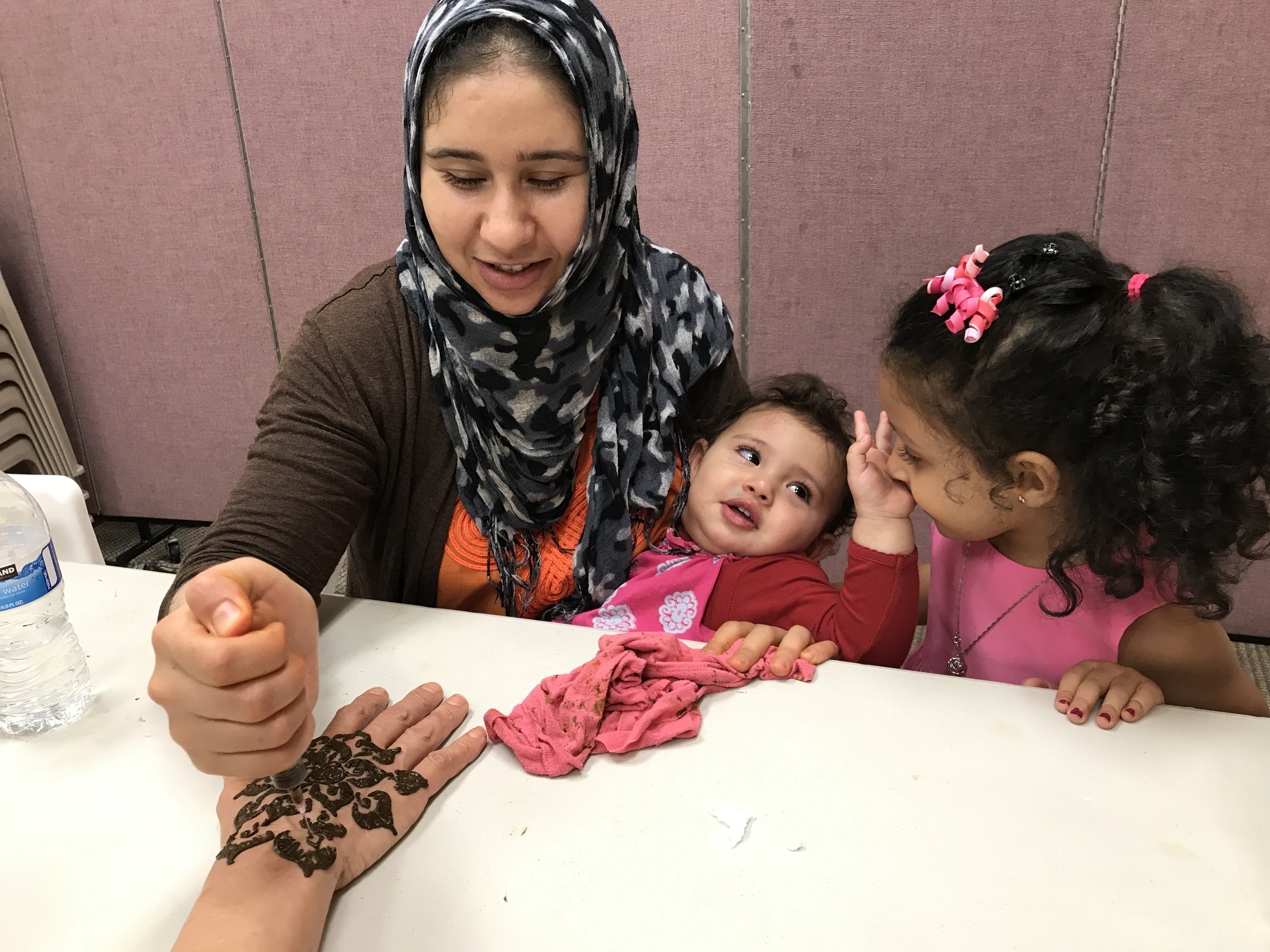
When I saw women suffering with terrible back spasms, taking pain medicine between prayers, I decided to be brave and offer these women – to whom I hadn’t yet spoken – a massage. My grandmother taught me a very effective pressure point technique that works wonders.
You would be amazed how many new friends you make in the final four days of Ramadan if you can relieve someone’s suffering during the breaks in prayers!
Now I must confess that I’ve been afraid of Eid coming because I have no family members willing to come with me. I thought that I would feel lost and alone. However, the final nights of Ramadan have opened the arms of Allah and I have walked into that sheltering embrace.
The truth is that now, I’m home wherever I go, especially with anyone who is a practicing Muslim. So now I look forward to Eid. My only sad thought is that Ramadan will be over. I will have to wait another entire year to sink as deeply into the community because so many of these brothers and sisters only come to the masjid during this holiday.
Insha’Allah, they will miss it as much as I and will come on Fridays to try and recreate even a fraction of the experience all year-round.
Lisa Suhay is a career journalist with 27 years experience and the mother of five. She is also the author of nine children’s books benefiting children’s charities. As a long-time community activist she is the founder of both RefugeeHelpers757 and the Norfolk Initiative for Chess Excellence (NICE) www.NiceChess.net.
Photo Credit: Bernadette

